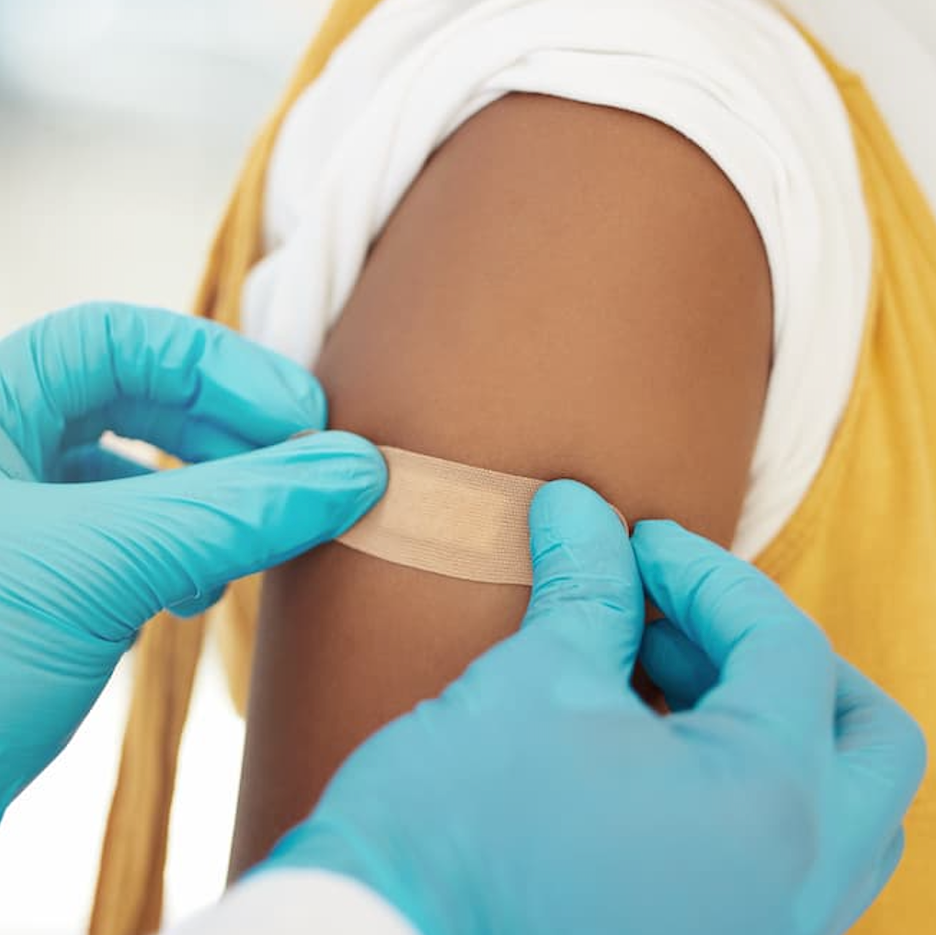Boosters Boost but Don’t Last for Older Adults
Despite a strong initial response to COVID-19 boosters, antibody persistence in older adults—especially those with pre-existing conditions—lessens over time, suggesting repeated vaccinations may be necessary.
By
Lana Pine
| Published on October 17, 2024
4 min read
Credit: Adobe Stock/Jesse Bettencourt/peopleimages.com

Older adults generally produce lower antibody responses to COVID-19 vaccinations compared to younger individuals, with persistence of these antibodies further reduced in those with comorbidities.
While the booster doses significantly increased antibody levels, especially against Wuhan and Omicron strains, older age and the presence of inflammatory and cardiometabolic diseases were linked to decreased long-term antibody persistence. Investigators believe this suggests that older and more vulnerable adults may need repeated booster vaccinations to ensure continued protection.
As a person ages, immune function reduces, which can lead to an increased susceptibility to infections as well as diminished vaccine efficacy. This population is also at a heightened risk of severe complications if infected with a virus, particularly for those with inflammatory or cardiometabolic diseases and frailty.
“The SARS-CoV-2 pandemic has further highlighted the importance of studying the vaccine responsiveness in older persons,” wrote a team of investigators led by Yunus Kuijpers, a PhD student associated with the Centre for Prevention, Lifestyle and Health at the National Institute for Public Health and the Environment (RIVM) in the Netherlands. “Given the increased vulnerability of older persons to infections, the vaccinations against SARS-CoV-2 play a crucial role in protecting older persons from severe COVID-19 illness and associated complications, as well as in reducing the risk of getting infected.”
Investigators conducted a longitudinal study of 1,374 adults aged 50 years and older to determine any health-related variables associated with antibody responses after repeated vaccinations, as well as their persistence in both infection-naïve and previously infected individuals. Subjects were recruited from a sub-cohort of the Doetinchem cohort study.
Blood samples and questionnaires were collected at both pre- and post-vaccination and up to a year after the fifth booster dose. Associations between the persistence of antibodies over time and age, sex and health characteristics, and a frailty index. Subjects were asked questions about demographic factors, lifestyle factors, comorbidities, general health, quality of life, COVID-19 vaccination information and SARS-CoV-2 testing information.
Frailty was assessed using the frailty index, which determined cognitive, physical and psychological functioning, in which 0 coincided with a total absence of a deficit and 1 represented total presence.
Booster shots significantly increased the anti-SARS-CoV-2 Spike S1 (S1) antibody concentrations in older participants against the Omicron and Wuhan strains. However, older age was linked to a decreased antibody persistence after the initial vaccinations and up to one year following the fifth dose.
Infection-naïve subjects with inflammatory disease also had reduced persistence over 12 months following the fifth dose, but had an increased antibody response to the third vaccine dose. Patients with cardiometabolic disease also had reduced antibody persistence after the initial vaccinations, but this was not observed after bivalent vaccination.
Investigators mentioned the use of detailed longitudinal data from a large cohort as a strength of the study, as they were able to assess the impact of a variety of health factors on antibody responses. However, they said grouping together inflammatory and cardiometabolic diseases could have been subjective, as some conditions are both inflammatory and cardiometabolic. Additionally, these patients were generally healthy, had low frailty index scores and lived in communities, so the generalizability of the findings may be hindered.
“Our study contributes to the surveillance of the vaccine induced antibody responses against SARS-CoV-2 over the course of the Corona virus pandemic, emphasizing the role of booster vaccination doses in older vulnerable persons for maintaining antibody concentrations,” investigators concluded.

